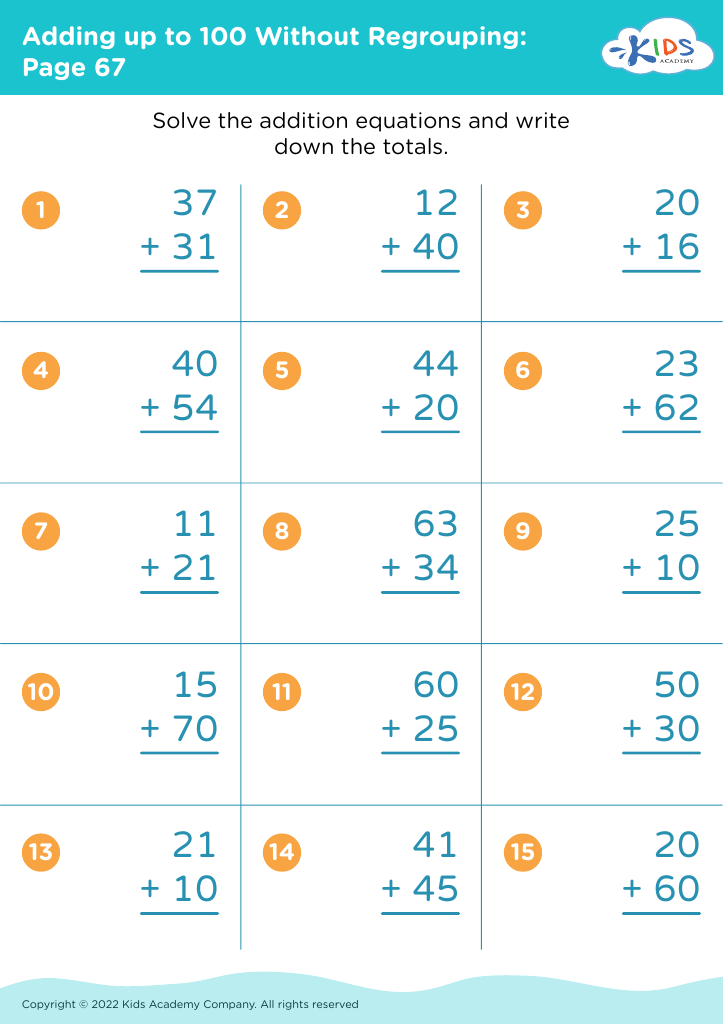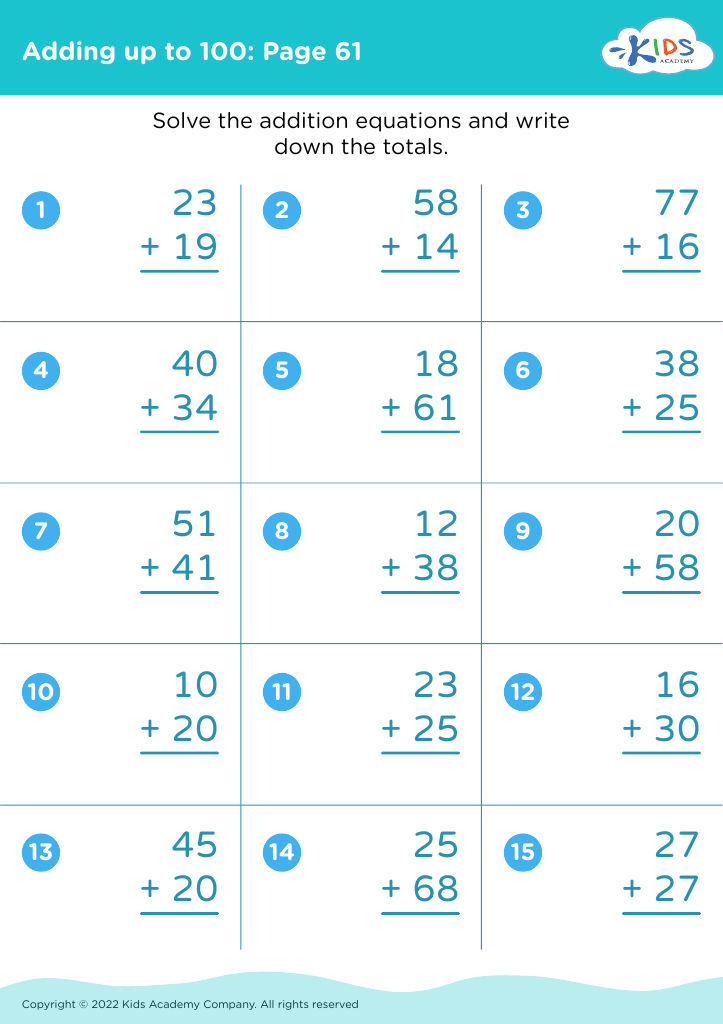Cognitive Development Adding up to 100 Worksheets for Ages 8-9
4 filtered results
-
From - To
Enhance your child's cognitive development with our "Adding up to 100 Worksheets" designed for ages 8-9. These engaging and meticulously crafted printable worksheets by Kids Academy focus on developing essential math skills by adding numbers up to 100. Each activity is tailored to boost logical thinking, problem-solving, and mental arithmetic while making learning fun and interactive. With a variety of exercises that gradually increase in difficulty, these worksheets ensure that kids build a strong mathematical foundation and confidence in addition. Perfect for home or classroom use, they are an invaluable resource for nurturing young math enthusiasts.
Cognitive development is crucial in the academic and overall life success of children, and focusing on enhancing their ability to add numbers up to 100 at ages 8-9 plays a significant role. At this critical stage in cognitive growth, learning to add numbers up to 100 helps solidify foundational arithmetic skills that are pivotal for more complex mathematics in later years. It also enhances mental calculation abilities, enabling quicker and more accurate problem-solving in everyday activities.
Moreover, proficiency in these basic arithmetic skills is strongly correlated with confidence in handling mathematical tasks. Children who master addition up to 100 tend to develop a more positive attitude toward math as a whole, reducing anxiety and fostering a love for learning. This early success builds resilience and persistence, essential traits for academic challenges that lie ahead.
Additionally, these mental math exercises implicitly teach children broader cognitive skills such as memory enhancement, logical reasoning, and pattern recognition—all of which spill over into other academic and life areas. They learn to approach problems methodically and understand the relationship between numbers, leading to improved performance in science, technology, and even social sciences later on.
Hence, parents and teachers should invest time and resources into nurturing children’s cognitive abilities in arithmetic to reopen the doors to confident and analytical thinkers poised for future academic excellence.










%20(1).jpg)











